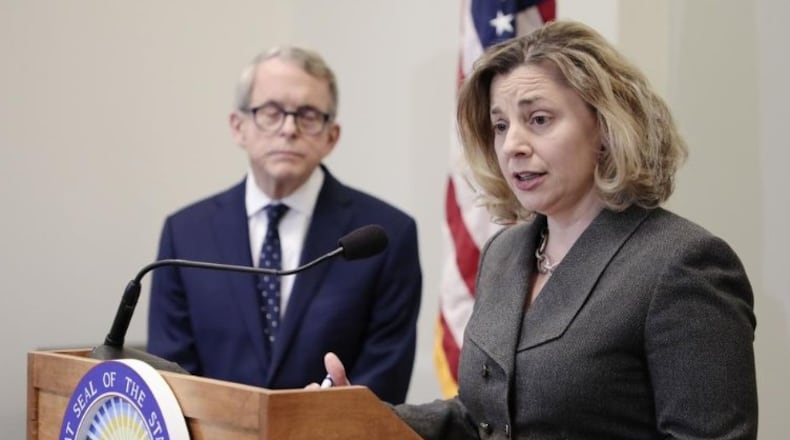The two chambers need to come to agreement and send the final budget to Gov. Mike DeWine by June 30. The state fiscal year starts July 1.
There are more than 500 points of contention between the House, Senate and governor’s versions of the 3,217 page bill.
Some of the differences are relatively minor. For example, DeWine and the House want to boost amusement ride inspection fees and the Senate agrees but not on the amounts.
Related: State budget: DeWine wants more money for kids and environmental projects
A major difference between the two chambers is over how much certain small businesses pay in state income tax. Currently, sole proprietorships, limited liability corporations and partnerships don’t pay state income tax on the first $250,000 in revenue. The Senate wants to leave that threshold while the House wants to reduce it to the first $100,000.
State Rep. Jack Cera, D-Bellaire, a conference committee member, said House Democrats are keeping an eye on three areas: taxes, education policy and Medicaid. Changes on those three fronts could impact whether Democrats support the final version of the bill, he said.
The House is proposing a 6.6 percent across the board cut to state income tax rates, implemented in the first fiscal year. The Senate is backing an 8 percent cut — 4 percent the first year, 4 percent the second year. The breaks would trim the tax bill for someone making $35,000 a year by $48 to $58 a year; someone making $70,000 by $125 to $151 a year; and someone making $125,000 by $270 to $327, according to the Ohio Department of Taxation.
Each chamber has attempted to fold separate, stand alone bills into the budget. For example, the Senate added language to create a “cyber reserve” of computer experts who could be activated to respond to a crisis such as a hack or government network take down. The House added language to make home addresses and phone numbers of crime victims exempt from disclosure under Ohio’s open records law.
Legislative leaders and conference committee members are expected to keep meeting behind closed doors to reach agreement on the differences.
Related: Ohio motorists will pay more in gas taxes starting July 1
About the Author

